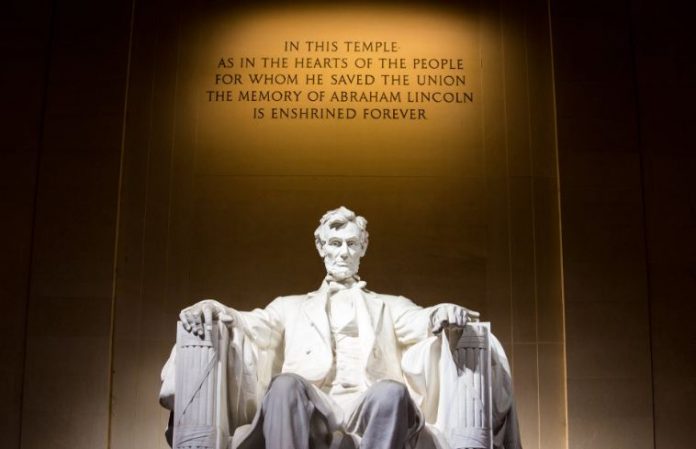Oratory was always viewed as the natural skill of a leader as it connects a true leader with the greater masses and thus we find in the history of mankind a number of great leaders who had a natural ability to sway the public with their glaring rhetoric and mobilized the whole nation in the path of greater and nobler goals.
The speech was their mouthpiece to reach out to the people and unite them for the causes of society and the nation. The politicians like Abraham Lincoln, Hitler, or Charles De Gaulle used they’re fine oratory skills to redefine the fate of their nations.
History is full of evidence where public speaking was used as a weapon to ignite group consciousness and waging battles to win human rights.
Martin Luther King, Jr’s inspirational speeches created the same impact for the emancipation of African Americans in the USA as the non-violence preaching of Gandhi did for the winning of independence by the Indian people from the British Government.
Thus rhetoric has always been regarded as the deciding factor of history and the individuals who used this tool to spread their views among general masses always occupied a special place not only in the pages of historical chronicles, also in the hearts of the people for many generations.
If we trace the etymological origin, we can see that the word, orator was a derivative of the Latin word for speaker oro, meaning “I speak” or “I pray”.
While in modern sense of the term the word orator simply means the art of public speaking, in a more refined sense it refers to a skill that is exercised on special occasions and delivered in a rather elaborate and ostentatious manner.
Then rhetoric is another word that closely relates to public speaking which derives its origin from a Greek word, Rhetor that is used to refer to a wonderful speech.
Oratory or rhetoric, any way you choose to describe this astounding art of public speaking was believed to originate in ancient Rome where Ars Oratoria or the art of speaking in public was regarded as an essential professional qualification of politicians and lawyers.
It was taught by the Sophists. But it was the Greeks who were believed to truly master the art of public speaking and as a result, the children from the aristocratic Roman families were packed off to Rome to train themselves in this art.
The ancient and Medieval Greece and Rome thus became the breeding ground of the orators, whose speeches are still consulted by the modern aspiring public speakers to learn the nuances of public speaking.
Demosthenes, Cicero, Marcus Porcius Cato, Marcus Licinius Crassus, Paul of Tarsos, Peter the Hermitall belonged to this genre of early public speakers.
In latter course of history, Aristotle and Quintilian developed a theory of rhetoric that divided this art into three major categories:
1. Deliberativeto convince the audience on certain matters; (b) forensicto make the audience agree or disagree on certain matters; (c) epideicticdisplay rhetoric to deliver for ceremonial purposes.
In the middle ages, Rhetoric was an important branch of liberal arts curriculum. The following centuries saw their practical and more significant application in three major areas of public lifepolitics, religion, and law.
However, till Renaissance, oratory was not independent of the institution of Church and thus it used to be a useful instrument in the hands of those holding high offices of Church to preach the common people about the supremacy of Church over the King. And thus the age produced some of the greatest orators of all time like Martin Luther, John Calvin, and John Knox.
The 18th century Europe witnessed the rise of a new generation of orators like Danton and Mirabeau, or Edmund Burke, Henry Gratten, and Daniel O’Connell who with their erudite rhetoric succeeded in contributing important chapters in the theory of politics and other aspects of public life.
The same was contributed by Patrick Henry and James Otis in the United States during this time. However, they were too erudite to connect to the common masses and it was with the emergence of the methodical and evangelical school of orators like John Wesley,
George Whitefield, Disraeli, John Bright, Mazzini who with their emotional tones were able to cut a wider mass appeal. Some of the greatest American orators like Abraham Lincoln, Henry Clay, Calhoun, Daniel Webster, or Stephen Douglas were believed to be influenced by this school of oratory.
The rhetoric of the twentieth century speakers were famously replete with catch phrases and some of the famous speeches of William Jennings Bryan, Eugene Debs, Susan B. Anthony, Woodrow Wilson, Lenin and Trotsky and David Lloyd George and Winston Churchill reflected this style.
During Second World War the burning speeches of Hitler or Mussolini introduced a propagandist style in the art of speech writing.
The world leaders and successful men and women in their respective fields in the latter course of history, who were respected for their oratory skills are believed to borrow heavily from the style and tradition of these historical speakers who with mere word power were able to set the course of human history.

